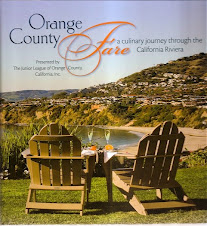This rich carrot dessert, which is popular throughout Northern India and Pakistan, became an obsession of ours when I was pregnant with my oldest son, Joseph. We made numerous visits to our then local Indian restaurant, Punjab Palace in Riverside, California, and when little Joseph began eating solids, spicy Punjabi dishes were among his favorites.
When my mom was here last week, we drove back to the old neighborhood for a Punjabi feast and to say hello to owner Raj. One bite and my Indian comfort food had me ooohing and aaahing once again. My mom was quickly seduced by Gajur Halva, a dessert deserving of a medal (Best Use of Carrots?) I completely understand; when we first discovered it, we quickly went to work preparing it at home. For a few months, you could count on finding a batch in our fridge, and it was our go-to dessert when we entertained guests.
4 cups peeled and finely grated carrots (or 10 medium)
4 cups milk
2 cups cream
1 cup honey (or 1-1/2 cups brown sugar)
1-1/4 cup almonds, blanched, peeled and finely ground
4 tablespoons sweet butter
1/2 teaspoon ground cardamom
1/3 cup golden raisins
2 teaspoon rosewater (optional)
In a large saucepan combine carrots, milk and cream, and bring to a boil over medium-high heat; stir constantly so the mixture does not stick or scorch. Reduce heat to medium-low and, stirring frequently, cook until it is thick enough to coat the spoon and is reduced in volume by about half. This will take approximately 1 1/2 hours. Add the honey or brown sugar and raisins, and continue cooking and stirring for another 10 minutes. Add ground almonds, butter and cardamom and continue cooking and stirring for at least 10 minutes more, until the mixture begins to pull away from the sides of the pan. It should have the consistency of heavy pudding. Turn off the heat and stir in the rosewater.
Heap the mixture into a shallow serving bowl. The flavor of halvah is fullest when it is served just slightly warm or at room temperature.
To prepare it as a candy, when the mixture is pulling away from the sides of the pan, increase the cooking time until it becomes even denser; after the rosewater has been added, turn it out into a 7x11-inch pan lined with lightly buttered wax paper. Pat it down firmly and smooth the surface with a fork. Refrigerate until cool and firm, then cut the halvah into squares or triangles.
Food Fact! Carrot Halvah is an ancient culinary delight. Poet Rumi extolled its virtues in the 1300s: "A villager who had come to town as a guest of a townsman was given some halvah. He ate it with relish and then said: 'Townsman, I had learned to eat nothing but carrots. Now that I have tasted halvah I have lost my taste for carrots. I won't be able to have halvah whenever I want, and what I had no longer appeals to me. What am I to do?' When the villager tasted halvah, he was inclined to the town. The townsman had captured his heart, and he had no choice but to follow in pursuit of it." --13th century Persian poet Mowlana Jalaladdun Rumi.
Punjab Palace Cusines of India 10359 Magnolia Ave., Riverside, Calif. 92505. Reservations: 951-351-8968.











No comments:
Post a Comment